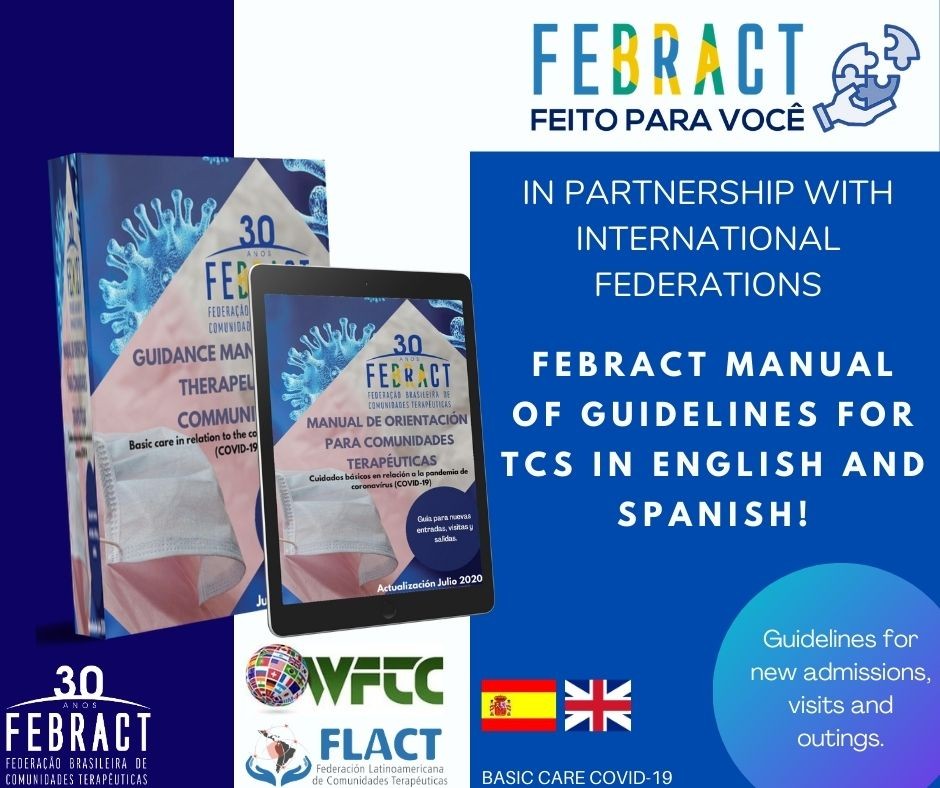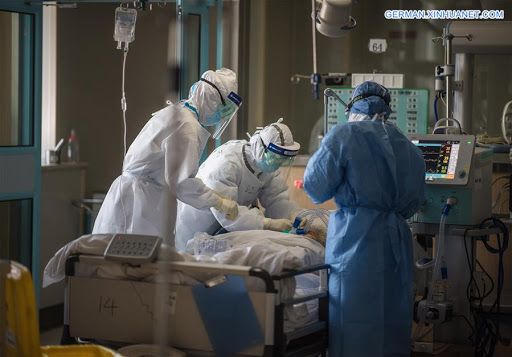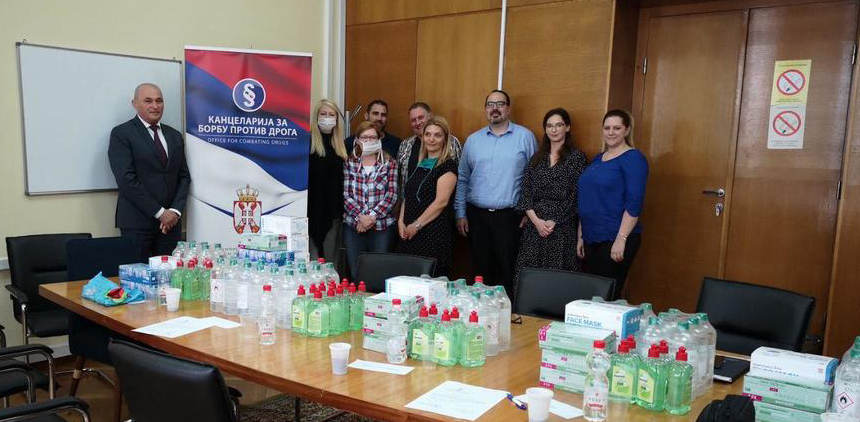 The Global Fund, the largest multilateral funder of health systems worldwide, is providing immediate funding of up to US$1 billion to help countries fight COVID-19, mitigate the impacts on lifesaving HIV, TB and malaria programs, and prevent fragile health systems from being overwhelmed, through grant flexibilities and the COVID-19 Response Mechanism.
The Global Fund, the largest multilateral funder of health systems worldwide, is providing immediate funding of up to US$1 billion to help countries fight COVID-19, mitigate the impacts on lifesaving HIV, TB and malaria programs, and prevent fragile health systems from being overwhelmed, through grant flexibilities and the COVID-19 Response Mechanism.
Grant flexibilities, announced on 4 March 2020, allow countries with current grants to: 1) use up to 5% of their current grant value if there are savings, and/or 2) reprogram up to 5% of the value of a grant to meet immediate COVID-19 response requirements. Repurposing equipment already purchased through a Global Fund grant is also an option to respond to COVID-19.
Total available funding for flexibilities is up to US$500 million. As of 5 May 2020, funding has been approved for 73 countries and five regional grants for a total of US$109 million. Among them Albania got US$80,400 of support, Kosovo EUR 91,733 and Romania EUR 316,255. This information is updated regularly through the Situation Reports on the Global Fund website. Eligibility: Countries and multi-country grants with current grants from the 2017-2019 allocation period.
Application process: For the use of savings and reprogramming, the Principal Recipient issues a request to the Global Fund’s Fund Portfolio Manager. Preferably, it is endorsed by the CCM. The Global Fund responds within five working days.
The request should include a brief budget, describe the activities to be funded, how it will fit into the national response, and outline potential consequences to and mitigants for HIV, TB and malaria programming.
Implementation: Global Fund financed activities must be implemented by an existing Principal Recipient (and/or existing Sub-Recipients). The main investment categories are (a) protecting Global Fund disease program against negative impact of COVID, (b) direct responses against COVID, and (c) address immediate gaps in health and community support systems. Guidance on eligible activities is available on the Global Fund’s website.
Funding Source: Countries can use savings or reprogram current grants, up to 10% of the grant value.
More information is available here>>>.
 The COVID-19 Response Mechanism (C19RM), approved in April 2020, authorizes US$500 million in funding in addition to grant flexibilities. C19RM can be used across the three diseases and the health system, even if a country only has a single Global Fund grant for one component. The CCM will assess the most urgent needs and direct activities through one or more of the principal recipients.
The COVID-19 Response Mechanism (C19RM), approved in April 2020, authorizes US$500 million in funding in addition to grant flexibilities. C19RM can be used across the three diseases and the health system, even if a country only has a single Global Fund grant for one component. The CCM will assess the most urgent needs and direct activities through one or more of the principal recipients.
Total available funding: USD$500 million, initially. Public and private donors are able to direct additional resources to the Global Fund through C19RM to scale up the COVID-19 response and support systems for health across the grant portfolio.
Eligibility: Countries with a Global Fund allocation for the 2020-2022 period can access an amount equivalent to up to 10% of their allocation. This ceiling includes the use of savings and reprogramming under existing grants.
The immediate additional amount of funds available for each country is 3.25% of the 2020-2022 allocation period, provided the country has not yet used savings and reprogramming exceeding 6.75% of this allocation. Application Process: The application is submitted through the CCM or the regional coordinating mechanism preferably by 31 May and no later than September 2020 so that emergency funding can reach countries as soon as possible.
The funding request is divided into two parts:
- Priority 1 for the most urgent activities. This is capped at 3.25% of the 2020-2022 country allocation. The Global Fund will respond within 10 days to this request.
- Priority 2 for supplementary interventions. This is capped at 10% of the 2020-2022 country allocation minus the amounts already requested for C19RM Priority 1 and approved grant flexibilities/reprogramming. These supplementary requests could be awarded later if more funds are made available.
- All applications should demonstrate that an inclusive engagement with civil society and key affected populations took place to formulate the demand. C19RM funds are additional and will not be deducted from the 2020-2022 allocation. Funding must be fully utilized by June 2021.
Instructions to apply can be found here>>>.
Implementation: C19RM funds must be implemented through an existing country grant and principal recipient, regional and multi-country grants. It can be used for three areas, to:
- Mitigate the impact of COVID-19 on current HIV, TB and malaria programs.
- Reinforce the national COVID-19 response
- Invest in urgent improvements in health and community systems
 The goal is to ensure that laws protect the health and wellbeing of individuals and communities and that they adhere to international human rights standards. Well-designed laws can help build strong health systems; evaluate and approve safe and effective drugs and vaccines; and enforce actions to create healthier and safer public spaces and workplaces.
The goal is to ensure that laws protect the health and wellbeing of individuals and communities and that they adhere to international human rights standards. Well-designed laws can help build strong health systems; evaluate and approve safe and effective drugs and vaccines; and enforce actions to create healthier and safer public spaces and workplaces.








 The IDPC Secretariat have been continuing to seek ways to better support information sharing and lessons learned from across the network as we face the challenges brought by COVID-19 and the responses governments are taking. In April, they launched a survey for their members (in
The IDPC Secretariat have been continuing to seek ways to better support information sharing and lessons learned from across the network as we face the challenges brought by COVID-19 and the responses governments are taking. In April, they launched a survey for their members (in 

 The Global Fund, the largest multilateral funder of health systems worldwide, is providing immediate funding of up to US$1 billion to help countries fight COVID-19, mitigate the impacts on lifesaving HIV, TB and malaria programs, and prevent fragile health systems from being overwhelmed, through grant flexibilities and the COVID-19 Response Mechanism.
The Global Fund, the largest multilateral funder of health systems worldwide, is providing immediate funding of up to US$1 billion to help countries fight COVID-19, mitigate the impacts on lifesaving HIV, TB and malaria programs, and prevent fragile health systems from being overwhelmed, through grant flexibilities and the COVID-19 Response Mechanism. The COVID-19 Response Mechanism (C19RM), approved in April 2020, authorizes US$500 million in funding in addition to grant flexibilities. C19RM can be used across the three diseases and the health system, even if a country only has a single Global Fund grant for one component. The CCM will assess the most urgent needs and direct activities through one or more of the principal recipients.
The COVID-19 Response Mechanism (C19RM), approved in April 2020, authorizes US$500 million in funding in addition to grant flexibilities. C19RM can be used across the three diseases and the health system, even if a country only has a single Global Fund grant for one component. The CCM will assess the most urgent needs and direct activities through one or more of the principal recipients.
 The report is the first in a series of briefings resulting from an EMCDDA ‘trendspotter’ study, launched in April to explore the impact of COVID-19 on the drug situation and responses to it. The agency’s
The report is the first in a series of briefings resulting from an EMCDDA ‘trendspotter’ study, launched in April to explore the impact of COVID-19 on the drug situation and responses to it. The agency’s  To read the study
To read the study 
 The COVID-19 and drug markets Report is
The COVID-19 and drug markets Report is